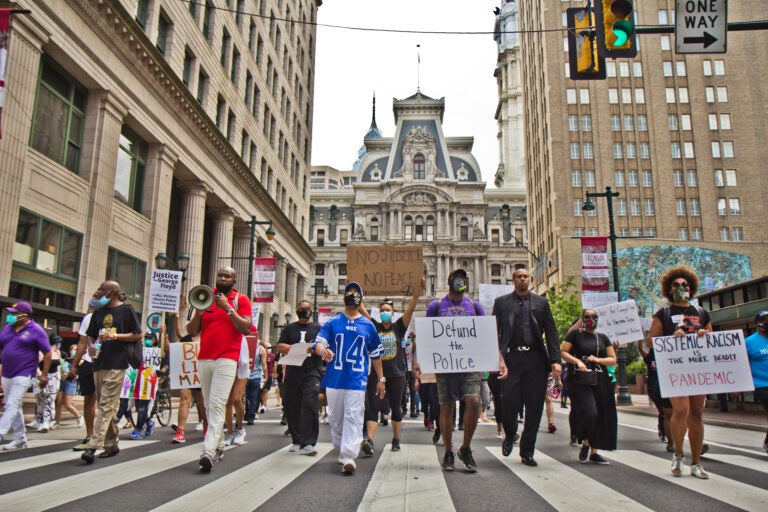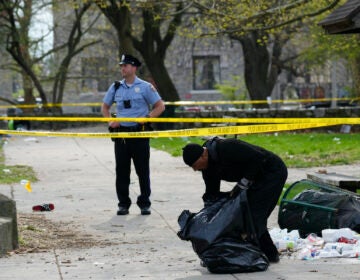Will Philly’s new police oversight commission be any better?
Philadelphia voters approved a new independent commission for people to file complaints against the police last month. The old one was criticized as ineffective.
Listen 17:01
Protestors calling for equality, justice, and an end to police brutality. (Kimberly Paynter/WHYY)
Philadelphia has had a Police Advisory Commission for decades. In theory, it was responsible for handling complaints from citizens about police misconduct. In practice, the commission wielded little power, and the process for a single complaint to be fully adjudicated often took years. Now, Philadelphia voters have approved a new independent body to do the job. But there are very few details about how the Citizen Police Oversight Commission will work, and how it will be funded–leaving some wondering whether it will be any better than the body it’s replacing. Annette talks this over with WHYY Criminal Justice Reporter Aaron Moselle.

Hear the whole story on The Why
Interview highlights
Aaron on how things worked under the Police Advisory Commission
Even if [people] file a complaint with the commission…it will still be bumped over to the police department, specifically the Internal Affairs department. The Internal Affairs Department will determine whether that complaint can be substantiated. If they do say that there is enough, then the issue goes to this police board of inquiry, which is made up of three three people, all officers, and they essentially decide whether the officer is guilty or not guilty. It’s not those exact terms, but that’s the general idea. And then whatever they decide, they will send that recommendation to the police commissioner who has the final say in determining what happens, at least from the police department’s side of things…Ultimately, though, police officers do have the ability to essentially appeal that decision through grievance arbitration, through the Fraternal Order of Police. So that decision can be outright overturned during that process. Or in some cases, the discipline is reduced by an arbitrator during that process. all of that can take a couple of years to complete, sometimes more, actually.
On what the new commission will do
At this point, we don’t really know. That’s kind of the short answer. What voters passed in November overwhelmingly gave counsel the green light to create this new oversight commission. But that’s all it really does. There isn’t any discussion about what its powers will be or what its budget will be. That will all be part of a forthcoming bill that will be introduced by council member Curtis Jones, which will enable this this body to actually be created.
On why voters approved it
This particular commission generally has a lot more widespread support. And, you know, I think a lot of that has to do with the time that it’s being created in. This process is happening after the police killing of Walter Wallace in West Philadelphia. But it also comes obviously after the police killing of George Floyd in Minneapolis and comes after all of the civil unrest and protests over police brutality and racial injustice that followed that. So the issues of officer behavior and police department accountability and transparency, those are very fresh in people’s minds. These are issues that people will have always worked on, but at this point are very much part of the national conversation and will continue to be.
WHYY is your source for fact-based, in-depth journalism and information. As a nonprofit organization, we rely on financial support from readers like you. Please give today.






